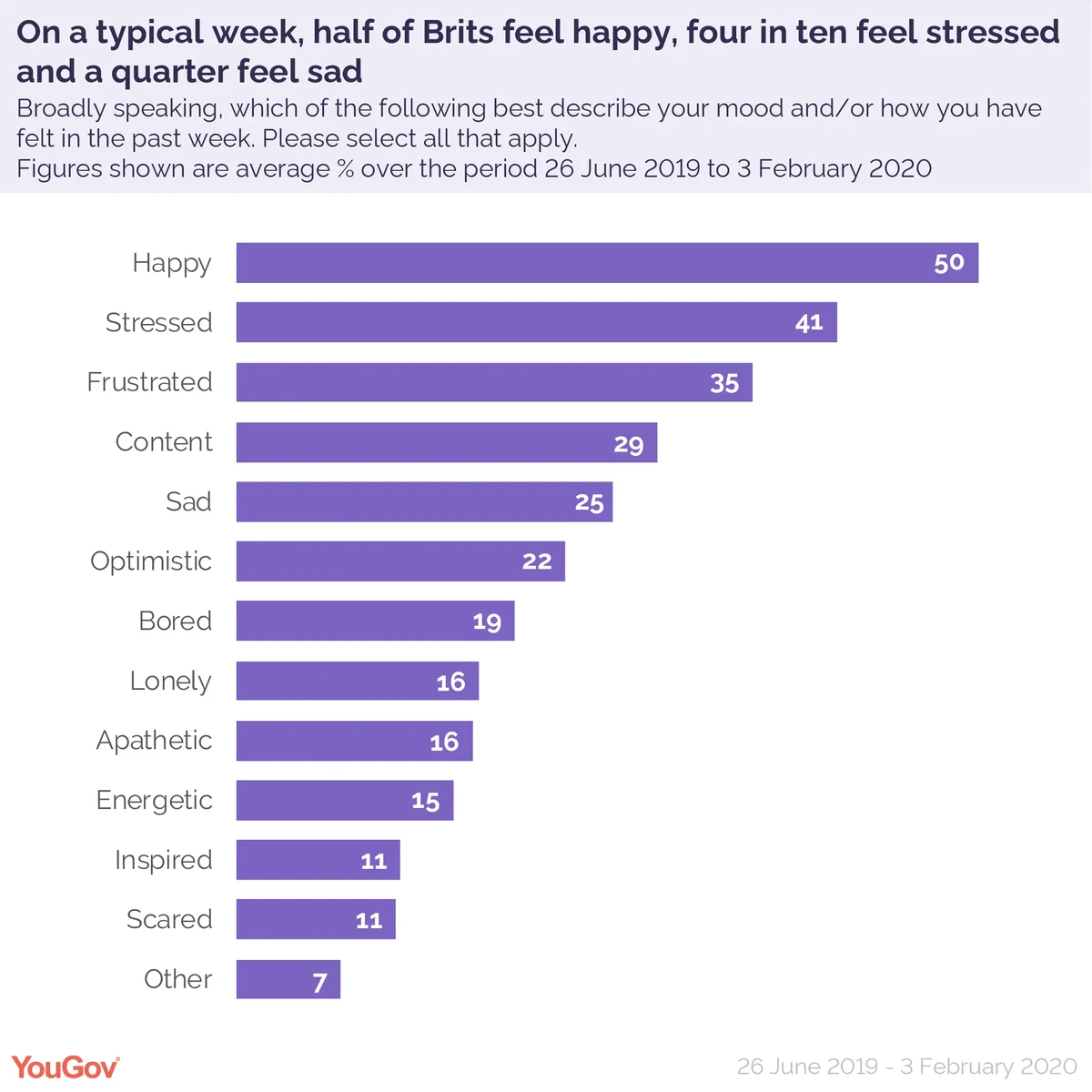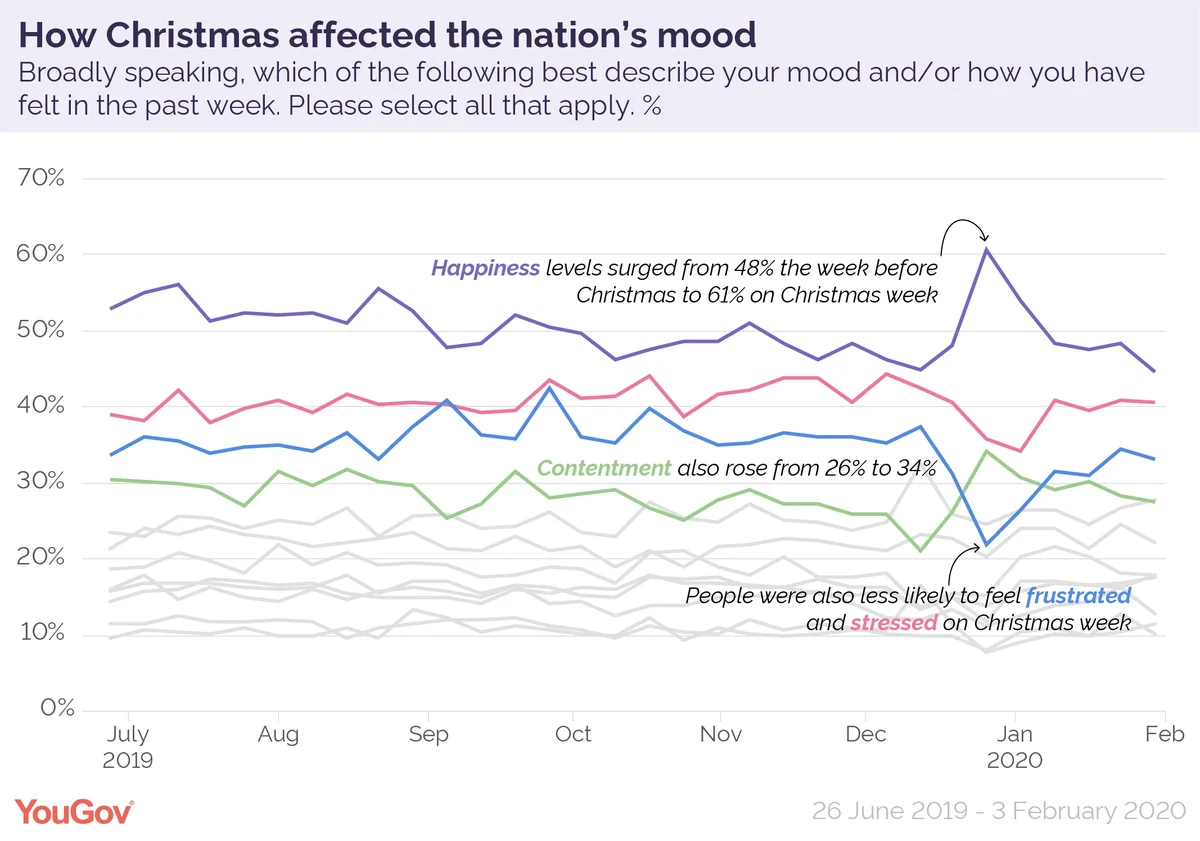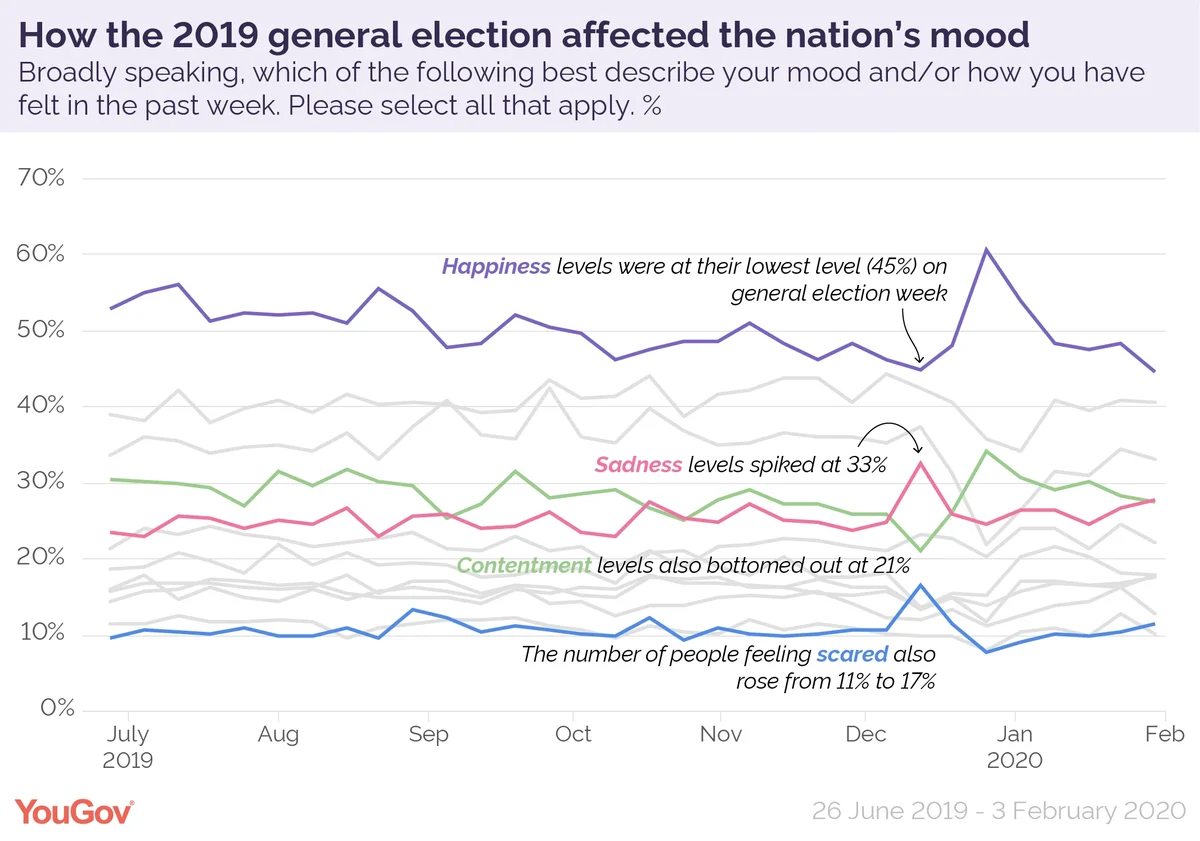New YouGov tracker reveals how the nation is feeling throughout the year, and finds that Christmas and general elections have a big impact
As part of our new series of tracker questions YouGov has been checking in with Britons on a weekly basis asking how they have felt over the preceding seven days.
Happily, the dominant national mood is one of happiness. Over the last half-year the average figure for people saying they felt happy has been 50%.
Less positively, the next most common emotions are stress (41%) and frustration (35%).

The figures also show that on any given week about a quarter of Brits report feeling sad, with the average figure for the last eight months being 25%.
Women were noticeably more likely to report feelings of sadness than men (29% versus 21%), as well as stress (46% versus 41%), although these may simply reflect a reluctance among men to report emotions they consider weak rather than an actual emotional disparity between genders.
On an average week as many as one in six people reported feeling lonely (16%). Despite perceptions that loneliness is an issue that primarily affects the elderly, it is in fact the youngest Britons who suffer most. A quarter of 18 to 29 year olds (27%) felt alone on a typical week, compared to only 10% of those aged 60 and above.
In fact, younger Britons seem to be having a harder time than their elders all round. Aside from the difference in levels of loneliness, the under-30s are also noticeably more likely to feel bored, stressed, sad and frustrated than those aged 50 and above.
Christmas put a smile on many faces, but the election result wiped it off some too
The survey clearly shows the impact that the festive season had on the national mood. In the week before Christmas 48% of Brits said they felt happy; this figure rose to 61% for the week of Christmas itself. At the same time the number of people feeling content rose from 26% to 34%.
Christmas week also saw a reduction in the number of people feeling stressed to 36%, from 41% the week before, while levels of frustration fell from 31% to 22%.
The result of December’s general election also had an effect on the national mood. Election week saw the proportion of Brits feeling sad spike to 33%, having been on 25% the week before. Likewise, a spike in the number of people who said they felt scared occurred, up to 17% from 11% the week before. In both cases the figures returned to normal levels the following week.
People who identify with the Labour party experienced the biggest emotional impact. The proportion feeling sad rose from 24% the week before the election to 38% upon Boris Johnson’s victory, while reports of feelings of fear rose from 10% to 23%.
Unsurprisingly there was no spike in negative sentiment among those who consider themselves Conservative, although nor did their happiness levels increase.
While the election certainly affected the country’s mood, it is noticeable that Britain leaving the EU did not. Compared to results from the week prior to Britain’s departure from the Union, there have been no changes in emotion outside the margin of error.
Photo: Getty












